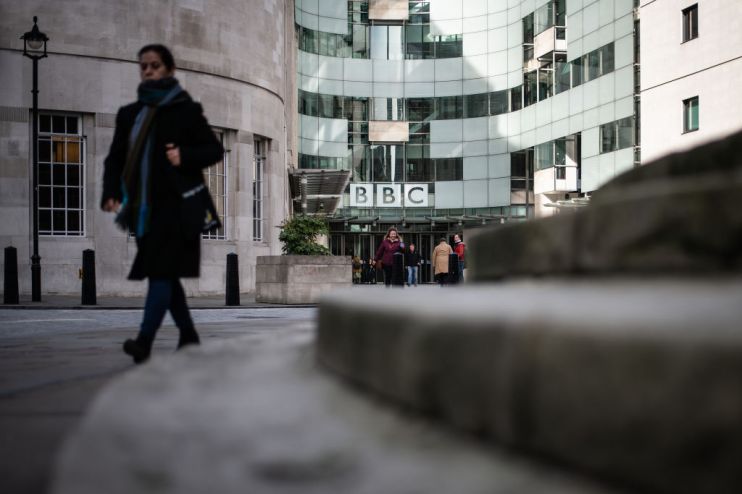Conservative MPs blast Number 10’s BBC ‘vendetta’

Senior Tory MPs have blasted Number 10’s “vendetta” against the BBC, describing plans scrap the licence fee and push the broadcaster towards a new subscription model as “cultural vandalism”.
Yesterday the Sunday Times reported plans were being readied to overhaul the BBC by forcing it to sell off the majority of its radio stations and scale back other parts of the business as well as ending the licence fee and forcing it to compete against the likes of Netflix and Sky on a subscription model.
One unnamed source told the paper: “We are not bluffing on the licence fee. We are having a consultation and we will whack it…. The whole thing needs massive pruning back.”
Read more: Don’t frame it as a front in the culture war – BBC reform can be in everyone’s interests
But although the move has some advocates – including Boris Johnson’s chief adviser Dominic Cummings who has long had the BBC in his sights and newly-appointed culture minister John Whittingdale – many on the backbenches signalled that they would not support such a bold step.
Whittingdale, a BBC hawk who held the more senior position of culture secretary under David Cameron, is leading the “attack”, the paper reported.
But several Tories have warned against the government’s intention.
Andrew Bowie, a vice chair of the Conservative party, tweeted he was “uneasy” about the plans.
“From a Unionist perspective, this is one of our last shared institutions- one in which every Briton has an equal stake; one that we as one nation share. Yes, we get frustrated with it. Yes, it can do better. But it is ours.”
Former DCMS select committee chair Damian Collins agreed: “No surprise that no-one has put their name to this destructive idea,” he tweeted. “This would smash the BBC and turn it from being a universal broadcaster to one that would just work for its subscribers. The biggest losers would be the UK’s nations and regions.”
Read more: Culture secretary warns BBC not to warn licence fee row
Even BBC-sceptics such as Collins’ successor Julian Knight sounded less than enthusiastic, saying while there were “some interesting points”, which reflected the BBC’s overreach, moving too fast would cause problems of its own. “
“One difficulty with moving v.rapidly to subscription is lack of infrastructure,” he tweeted. “We need to take stock of what we want from BBC and PSBs ahead of 2022 and 2027.”
Others pointed to the fact that it was not part of the manifesto, and therefore difficult to argue that the government had the mandate for such a controversial move.
Former deputy Prime Minister Damian Green tweeted: “I hope the Sunday Times story about the BBC is kite-flying. Destroying the BBC wasn’t in our manifesto and would be cultural vandalism. “Vote Tory and close Radio 2”. Really?”
Huw Merriman described it as a “vendetta”, adding: “No mention of it in our manifesto (where we actually promised to work with BBC to build new partnerships across globe) so I won’t be supporting it.”
Foreign Affairs committee chairman Tom Tugendhat backed his colleague, describing the BBC’s World Service as “the strongest forces in fighting state propaganda around the world”.
He added: “It builds on the network at home.”
The government has already launched a one-month consultation on whether to decriminalise the licence fee under former culture secretary Nicky Morgan. It is not clear yet how her replacement Oliver Dowden views the broadcaster.
But the BBC is seen as being in a particularly weak point to wage war with Number 10, with its director general Tony Hall stepping down.